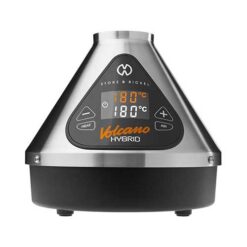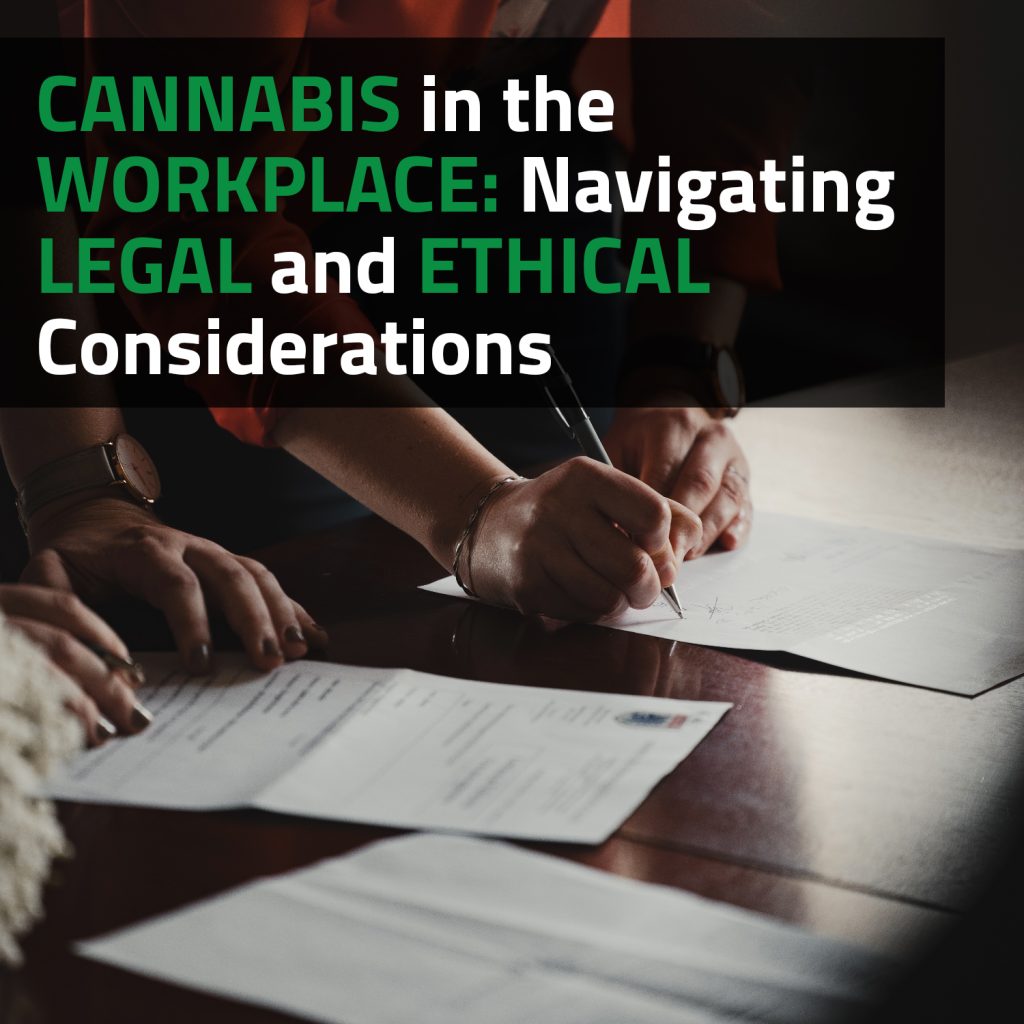The legalization of cannabis for medicinal and recreational use has brought about significant changes in society, including its impact on the workplace. As more jurisdictions around the world embrace cannabis reform, employers and employees are faced with a myriad of legal and ethical considerations regarding its presence in the workplace.
The complex interplay between individual rights, workplace safety, and legal obligations requires careful navigation to strike a balance that respects both employee autonomy and employer responsibilities. This article aims to explore the various legal and ethical dimensions surrounding cannabis in the workplace, providing insights and guidance for employers and employees alike.
The Legal Landscape: Current Laws And Regulations
It is crucial for employers and employees to understand the current laws and regulations governing cannabis in their specific jurisdiction to navigate the legal landscape effectively.
- Legalization for medicinal use: Cannabis has been legalized for medical purposes in South Africa. This means that individuals with certain medical conditions can obtain cannabis with a prescription from a healthcare professional. Employers need to be aware of the specific laws governing medical cannabis use, including any requirements for registration, documentation, and patient confidentiality.
- Legalization for recreational use: Cannabis has been legalized for recreational use in South Africa, allowing adults to possess and consume cannabis for personal enjoyment. However, even in these cases, there are restrictions on where and how cannabis can be used, such as prohibitions on public consumption or consumption in certain designated areas. Employers should understand the limitations on recreational cannabis use and consider how it may impact the workplace.
It is essential for employers to consult legal experts and stay up to date with any changes in cannabis legislation. They should understand their rights and obligations as employers within the legal framework of their jurisdiction. Employers should also consider the potential implications of cannabis laws on workplace policies, such as drug testing, accommodations for medical cannabis use, and maintaining a safe and productive work environment.
Developing Workplace Policies
When it comes to cannabis in the workplace, developing clear and comprehensive policies is crucial for employers to maintain a productive and safe work environment while respecting legal requirements and employee rights. Here are some best practices and considerations to guide employers in developing effective workplace policies:
- Stay informed and updated: Keep abreast of the current laws and regulations pertaining to cannabis in your jurisdiction. Stay informed about any changes or updates to ensure your policies align with the legal framework
- Define the scope: Clearly define the scope of your policy, specifying whether it applies to both medicinal and recreational cannabis or to one specific use. Clearly communicate the expectations and guidelines regarding cannabis use, possession, and impairment during work hours or on company premises
- Consider the nature of your business: Different industries and job roles may have varying levels of risk and safety concerns associated with cannabis use. Assess the specific risks and safety implications relevant to your organization and incorporate them into your policies accordingly. Industries such as transportation, healthcare, or heavy machinery operation have stricter policies due to safety requirements
- Impairment and performance: Establish guidelines regarding impairment in the workplace. Clearly communicate that employees should not be under the influence of cannabis while performing job duties that require alertness or pose safety risks. Consider implementing protocols for assessing and managing impairment, such as observation, reporting mechanisms, or appropriate disciplinary actions
- Accommodations for medical cannabis: Understand your legal obligations and duty to accommodate employees with valid medical cannabis needs. Ensure your policies provide for reasonable accommodations while maintaining a safe and productive work environment. Consult with legal experts to navigate this aspect effectively
- Communication and education: Promote open and transparent communication about the company’s cannabis policies. Provide clear information and resources to employees regarding the policy’s details, expectations, and potential consequences. Offer educational programs or resources to increase awareness about responsible cannabis use and potential risks
- Privacy and confidentiality: Address employee privacy concerns related to cannabis use and ensure that any information obtained through drug testing or medical documentation is treated confidentially and in compliance with applicable privacy laws
- Consistency and non-discrimination: Apply policies consistently across the organization and ensure they are not discriminatory. Avoid targeting specific individuals or groups based on personal biases or assumptions. Treat cannabis use similarly to other legal substances, such as alcohol or prescription medications, in terms of policy enforcement and disciplinary actions
- Review and update: Regularly review and update your policies to adapt to changing laws, societal norms, and organizational needs. Solicit feedback from employees and supervisors to identify any areas that may require improvement or clarification
- Legal counsel: Seek legal counsel to ensure your policies align with local laws and regulations. Legal experts can help you navigate the complexities of cannabis in the workplace and provide guidance specific to your jurisdiction and industry
Employers must consider any potential legal implications related to discrimination or privacy rights. Some jurisdictions have laws that protect individuals from discrimination based on their use of medical cannabis or their status as registered medical cannabis patients. Employers should be mindful of these protections and ensure that their policies and practices align with anti-discrimination laws.
Cannabis And The Workplace
Cannabis legalization has introduced a host of legal and ethical considerations for employers navigating the landscape of the workplace. By understanding and addressing these considerations, employers can ensure compliance with the law, foster a safe work environment, and uphold ethical principles. Key areas of focus include legal compliance, the development of clear workplace policies, respecting employee privacy and rights, prioritizing workplace safety, establishing fair drug testing and screening practices, promoting non-discrimination and equity, fostering education and awareness, and engaging in ethical decision-making.
Ethical considerations extend beyond legal obligations, requiring employers to make decisions that prioritize employee well-being, transparency, and fairness. Promoting education and awareness among employees about responsible cannabis use and providing resources for support can help foster a culture of understanding and responsibility.
By navigating these legal and ethical considerations, employers can strike a balance between compliance, safety, and employee rights, while fostering a work environment that upholds the values of fairness, respect, and inclusivity. With continued diligence, open communication, and adaptability, employers can successfully navigate the complexities of cannabis in the workplace, ultimately ensuring a productive and harmonious work environment for all.
-
BLK Kiss Dry Herb Vaporizer
R1,050.00 -
DAVINCI IQ-C Vaporizer
R3,950.00 -
Volcano – HYBRID
Price range: R9,780.00 through R11,000.00 -
Black Leaf – “Wand Vape” Steel Hand Vaporizer
R375.00










